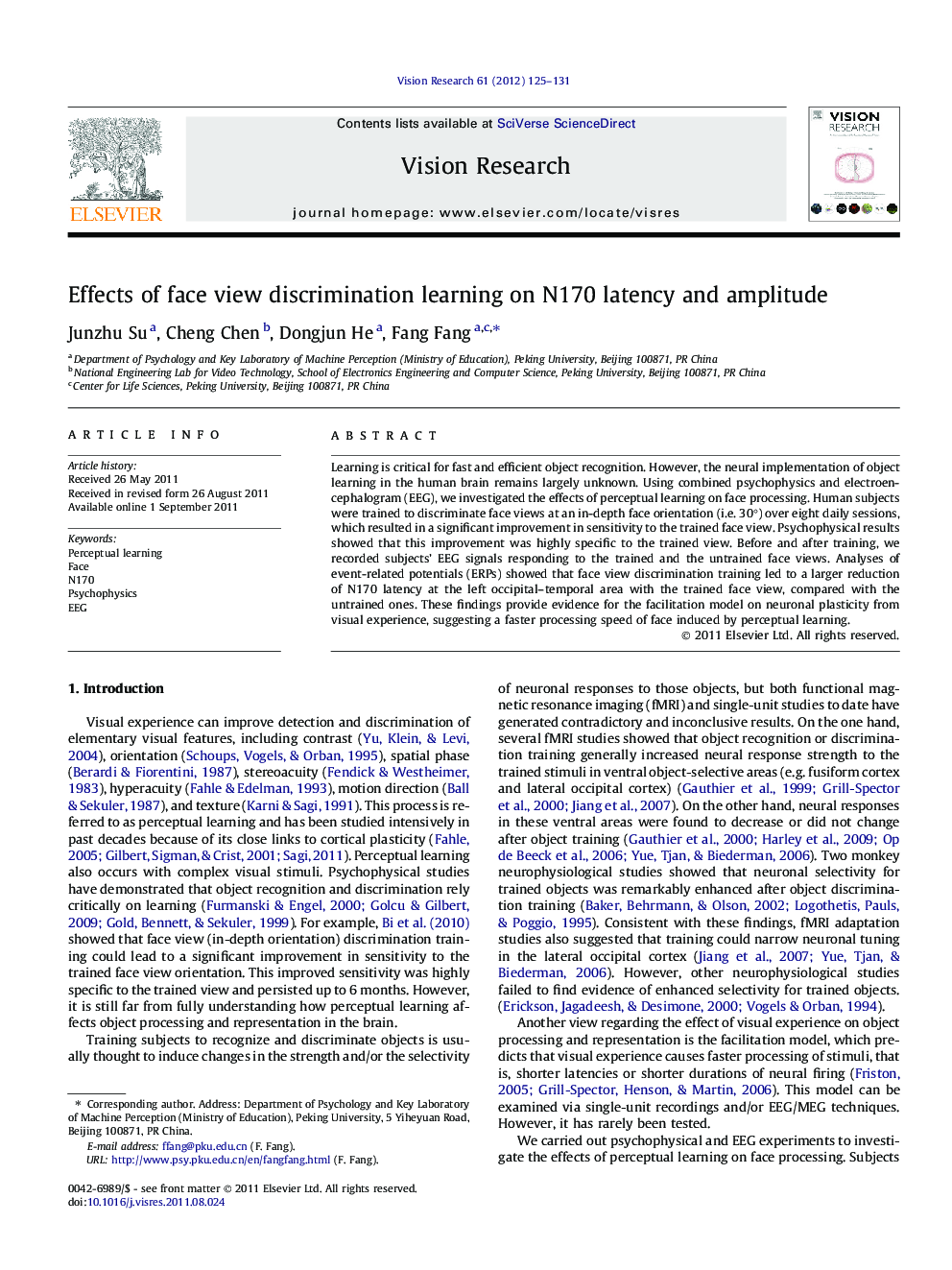| Article ID | Journal | Published Year | Pages | File Type |
|---|---|---|---|---|
| 4034017 | Vision Research | 2012 | 7 Pages |
Learning is critical for fast and efficient object recognition. However, the neural implementation of object learning in the human brain remains largely unknown. Using combined psychophysics and electroencephalogram (EEG), we investigated the effects of perceptual learning on face processing. Human subjects were trained to discriminate face views at an in-depth face orientation (i.e. 30°) over eight daily sessions, which resulted in a significant improvement in sensitivity to the trained face view. Psychophysical results showed that this improvement was highly specific to the trained view. Before and after training, we recorded subjects’ EEG signals responding to the trained and the untrained face views. Analyses of event-related potentials (ERPs) showed that face view discrimination training led to a larger reduction of N170 latency at the left occipital–temporal area with the trained face view, compared with the untrained ones. These findings provide evidence for the facilitation model on neuronal plasticity from visual experience, suggesting a faster processing speed of face induced by perceptual learning.
► Perceptual learning improves face view discrimination. ► Face view discrimination training shortens N170 latency. ► The left hemisphere is more susceptible to face learning.
